A US Senate panel investigating Russian interference in last year's election has issued a rare formal demand for documents from President Donald Trump's former national security adviser.
Michael Flynn has failed to voluntarily co-operate with the investigation, the Senate Intelligence Committee says.
He was forced to resign in February after failing to disclose the content of his talks with Russian diplomats.
Meanwhile, the fallout continues over the firing of the FBI director.
The White House maintained that James Comey was removed on Tuesday for his handling of the inquiry over Hillary Clinton's emails.
But senior Democrats said he had recently asked the justice department for more resources for his Trump-Russia investigation.
Flynn: Documents demanded
The Senate Intelligence Committee said it issued a subpoena after Mr Flynn rejected its request on 28 April to submit documents relevant to the investigation.
Mr Flynn, a retired army lieutenant-general, misled the White House about discussing US sanctions against Russia with the country's envoy, Sergei Kislyak, before Donald Trump's inauguration in January.
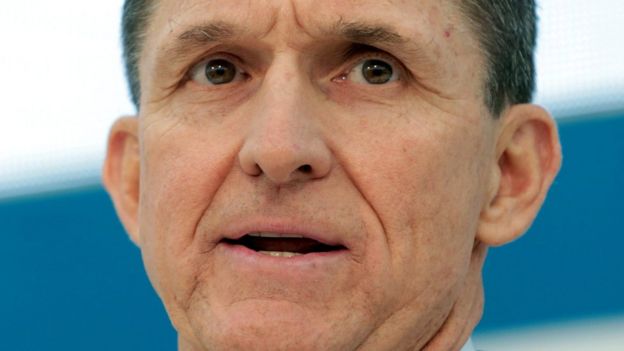 REUTERS
REUTERSHis links to Russia are being scrutinised by the FBI and the House and Senate Intelligence Committees, as part of wider investigations into claims Moscow sought to tip the election in favour of Mr Trump, and into contacts between Russia and members of the president's campaign team.
The rare use of a subpoena by senators makes it clear that the committee is forging ahead with its investigation into the alleged Trump-Russia links, the BBC's Laura Bicker in Washington says.
Comey fired: Fallout continues
Reaction to Mr Comey's firing continued on Wednesday, with a White House spokeswoman saying that President Trump had been considering sacking the FBI director since he was elected.
But critics accuse the Republican president of firing the nation's top law enforcement official because he was leading the Russian inquiry.
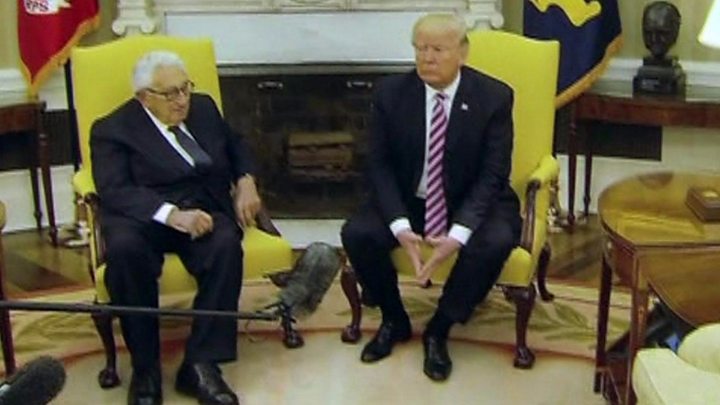
The White House has rejected calls to appoint a special prosecutor to investigate allegations the Trump campaign colluded with the Kremlin over last year's election.
The Senate Intelligence Committee invited Mr Comey to testify next week.
In a farewell letter to staff, Mr Comey said he would not "spend time on the decision or the way it was executed".
"I have long believed that a President can fire an FBI Director for any reason, or for no reason at all," he wrote.
"It is very hard to leave a group of people who are committed only to doing the right thing," he added.
"My hope is that you will continue to live our values and the mission of protecting the American people and upholding the Constitution."
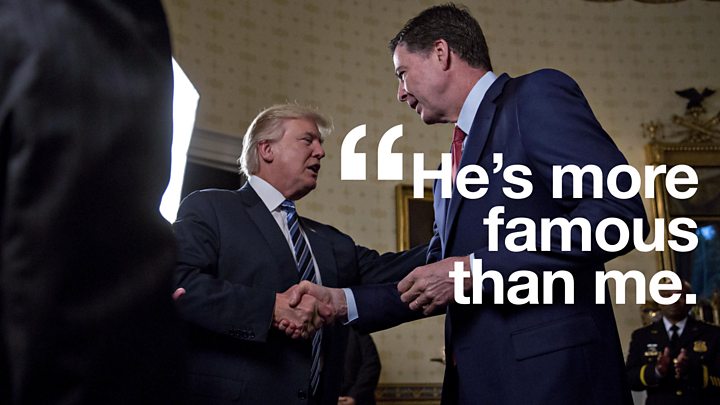
President Trump stood by his actions, saying Mr Comey was fired "because he was not doing a good job".
On Wednesday, Democratic senators Dianne Feinstein and Richard Durbin told US media that Mr Comey had asked Deputy Attorney General Rod Rosenstein - who wrote the memo on which President Trump says the sacking decision was based - for more resources for the FBI investigation.
Justice department spokeswoman Sarah Isgur Flores called those reports "totally false".
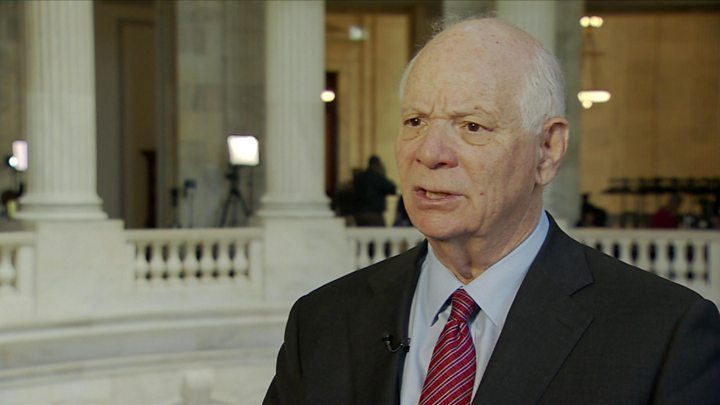
Either way, Republicans and Democrats vowed the House and Senate Intelligence Committees' investigations into the Russia claims would continue.
Republican Senator Lindsey Graham said if Mr Trump believed replacing Mr Comey would halt the inquiries "he made a big mistake".
At the centre of the storm - Deputy Attorney General Rod Rosenstein
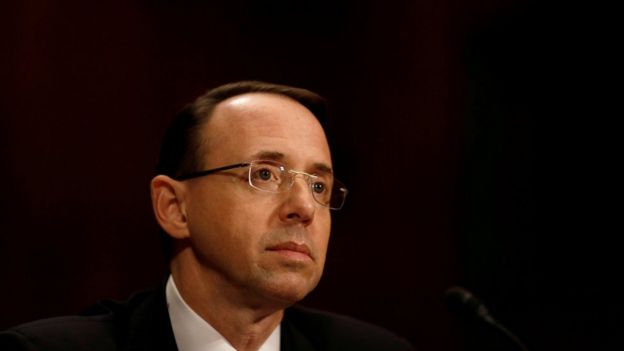 REUTERS
REUTERS- 52-year-old Harvard graduate confirmed by US Senate as Deputy Attorney General on 25 April
- Had strong bi-partisan backing with 94-6 vote in his favour
- Overseeing federal investigation of alleged Russian interference in November's elections, after his boss, Attorney General Jeff Sessions, recused himself over meetings with Moscow's envoy in Washington
- Appointed by President George W Bush as US attorney in Maryland and kept on by President Barack Obama
- Reputation as apolitical and professional
- Wrote memo detailing "serious mistakes" by Mr Comey, but did not expressly call for his removal
- Threatened to resign after White House cast him as the prime mover in the firing, according to an anonymous source quoted by the Washington Post


0 Comments